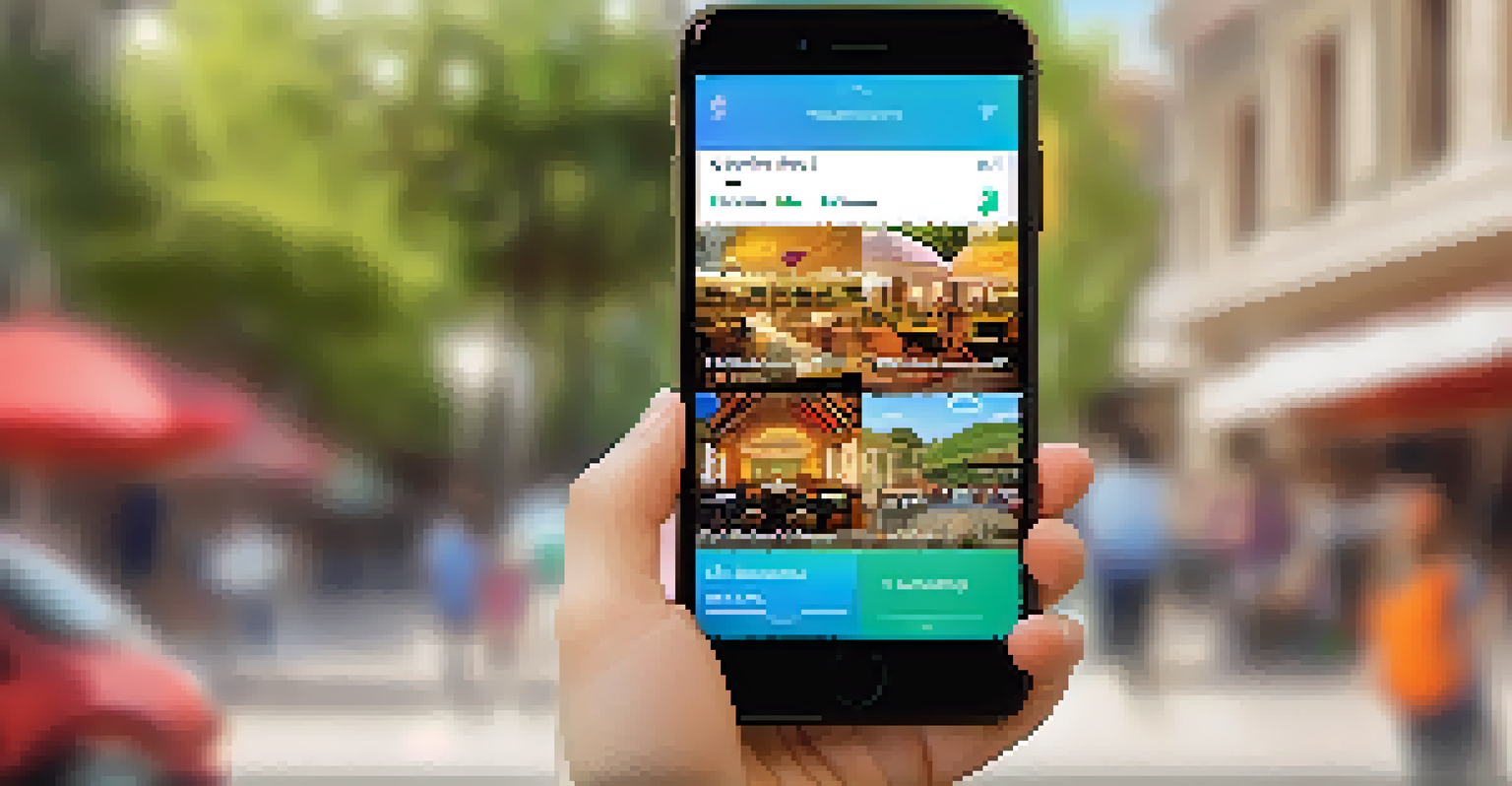The Importance of Disability Awareness in Tourism Services

What is Disability Awareness in Tourism?
Disability awareness in tourism refers to recognizing and understanding the diverse needs of travelers with disabilities. This encompasses physical, sensory, and cognitive impairments that can affect a person's travel experience. By being aware of these challenges, tourism providers can create more inclusive environments that cater to all individuals.
Accessibility allows us to tap into a larger market, and it also reflects a commitment to customer service.
For example, consider a traveler with a mobility impairment. Without proper accommodations like ramps or elevators, their experience can be significantly hindered. By prioritizing disability awareness, tourism services can ensure that such barriers are addressed, enhancing accessibility for everyone.
Ultimately, disability awareness is about fostering an inclusive mindset within the tourism industry. This mindset not only improves service quality but also enhances the overall travel experience, making it enjoyable for all visitors.
The Impact of Disability Awareness on Customer Satisfaction
When tourism services prioritize disability awareness, they directly improve customer satisfaction. Travelers with disabilities often face unique challenges, and when these challenges are acknowledged and addressed, it leads to a more positive experience. Happy customers are more likely to return and recommend services to others.

For instance, a hotel that offers accessible rooms and trained staff to assist guests with disabilities demonstrates a commitment to inclusivity. This not only makes the guests feel welcome but also builds trust and loyalty. Travelers are more inclined to choose businesses that cater to their needs.
Inclusive Tourism Enhances Experiences
By prioritizing disability awareness, tourism providers can create welcoming environments that cater to all travelers.
In today’s competitive tourism landscape, standing out is crucial. By embracing disability awareness, businesses can differentiate themselves, attract a wider audience, and ultimately increase their revenue.
Benefits of Inclusive Tourism Practices
Inclusive tourism practices go beyond just meeting legal requirements; they offer numerous benefits to businesses and communities alike. For one, they promote diversity and foster a sense of belonging among travelers. This not only enriches the travel experience but also contributes to a more vibrant local culture.
Inclusion is not a matter of political correctness. It is the key to growth.
Moreover, inclusivity can lead to increased business opportunities. With a growing number of travelers seeking accessible options, businesses that prioritize these services can tap into this emerging market. This not only boosts revenue but also enhances the brand's reputation.
Additionally, inclusive practices often improve services for all customers, not just those with disabilities. For example, features like accessible restrooms and clear signage benefit everyone, creating a more enjoyable and stress-free travel environment.
The Role of Training in Promoting Disability Awareness
Training staff in disability awareness is essential for creating an inclusive tourism environment. Employees who understand the needs of travelers with disabilities can offer better assistance and improve customer interactions. This training can include how to communicate effectively, provide necessary accommodations, and respond to various situations.
For instance, a tour guide trained in disability awareness might know how to modify a tour for guests with mobility issues, ensuring everyone can participate fully. This not only enhances the experience for those individuals but also enriches the tour for all participants.
Training Staff Boosts Customer Satisfaction
Equipping employees with disability awareness training improves service quality and fosters loyalty among travelers.
Investing in staff training not only demonstrates a commitment to inclusivity but also empowers employees to feel confident in their roles. As a result, they can create positive experiences that resonate with all travelers, fostering goodwill and repeat business.
Creating Accessible Destinations: Best Practices
Creating accessible destinations involves implementing best practices that cater to the diverse needs of travelers. This starts with conducting thorough assessments of facilities, attractions, and transportation options to identify potential barriers. Ensuring that these venues comply with accessibility standards is crucial for enhancing the overall experience.
For example, installing curb cuts, providing wheelchair rentals, and ensuring clear signage are practical steps that can significantly improve accessibility. Additionally, involving people with disabilities in the planning process can provide valuable insights into what changes are necessary.
Ultimately, creating accessible destinations is about more than compliance; it's about enhancing the visitor experience and encouraging wider participation in tourism activities. Accessible destinations not only attract more visitors but also foster a sense of community and inclusivity.
Technology's Role in Enhancing Accessibility
Technology plays a pivotal role in enhancing accessibility in tourism services. From mobile apps that provide information on accessible routes to virtual reality experiences that preview destinations, technology can significantly improve the travel experience for individuals with disabilities. These innovations can help travelers plan their trips more effectively.
For example, apps that allow users to filter accommodations based on accessibility features make it easier for travelers to find suitable options. Additionally, websites that include accessibility information can save time and reduce frustration during the planning process.
Technology Improves Accessibility
Innovative technology solutions help travelers with disabilities plan their trips and find accessible options more easily.
As technology continues to evolve, it offers exciting possibilities for improving accessibility in tourism. Embracing these tools not only benefits travelers with disabilities but also enhances the overall visitor experience, making travel more enjoyable for everyone.
The Future of Disability Awareness in Tourism
As awareness around disability rights continues to grow, the future of tourism is increasingly leaning towards inclusivity. More organizations are recognizing the importance of catering to travelers with disabilities, which will shape the industry in the coming years. This shift is not only ethical but also economically beneficial, as it opens up new markets.
In the future, we can expect to see more comprehensive policies and initiatives aimed at improving accessibility across various tourism sectors. This includes not just accommodations but also attractions, restaurants, and transportation services, creating a more unified approach to inclusivity.

Ultimately, the emphasis on disability awareness in tourism will lead to richer travel experiences for all. By fostering a culture of inclusivity, the industry can not only meet the needs of travelers with disabilities but also create a more welcoming and enjoyable atmosphere for everyone.